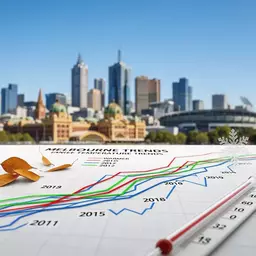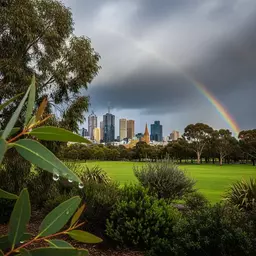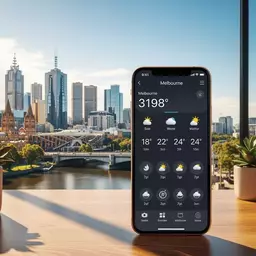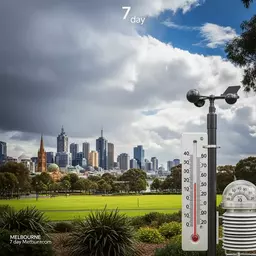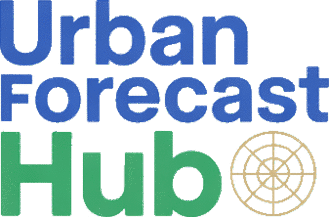Melbourne Climate Trends for 2025

In an age where climate concerns are at the forefront, understanding local weather patterns has never been more critical. As Melbourne residents, we are witnessing firsthand the shifts in our climate that can dictate our daily lives. With record-breaking temperatures and unpredictable rainfall, it’s essential to grasp these changes and what they mean for our future.
What You Will Learn
- May 2025 marked one of the hottest months in Melbourne’s recorded history, indicating significant climate shifts.
- Residents are experiencing increased discomfort due to rising temperatures, leading to higher energy consumption.
- Climate change is causing erratic weather patterns, including more frequent heatwaves and sudden heavy rainfall.
- Local ecosystems are under threat as global warming impacts plant blooming times and increases bushfire risks.
- Understanding climate data empowers residents to make informed decisions regarding energy use and health risks.
- Engaging with local climate action initiatives can foster community resilience and promote sustainable practices.
Melbourne's Changing Climate: Key Shifts & Impacts (2025)
This visual highlights the observed climatic shifts and their impacts on Melbourne's ecosystem and weather patterns based on recent data and trends. Understanding these changes is crucial for informed decision-making and community resilience. For more detailed information on local temperature changes, you can explore Melbourne's Urban Temperature Trends Explained.
Recent Temperature Trends
Warm May Records
- May 2025: One of warmest on record.
- Daily highs surpassed historical averages.
- Increased energy consumption due to heat.
Victoria's Weather Patterns
Climate Change Reshaping
- Increased frequency of heatwaves.
- Droughts with sudden heavy rainfall.
- More erratic storm patterns, flash flooding.
Global Warming's Influence
Impact on Melbourne's Ecosystem
- Changes in plant blooming times.
- Increased vulnerability of native wildlife.
- Greater risks of bushfires due to dry spells.
Understanding Melbourne's Climate Landscape in 2025
As a Melbourne resident myself, I know how vital it is to understand the unique climate landscape of our vibrant city. In 2025, the effects of climate change are becoming more pronounced, impacting everything from our daily weather to long-term environmental trends. This section will delve into recent observations and the ongoing shifts in our atmosphere, helping us better navigate Melbourne's dynamic climate.
Whether you’re planning a picnic or deciding what to wear for the day, being aware of our climate realities can significantly enhance our daily experiences and decisions. Let's explore what’s been happening with our weather and how it may shape our future!

Recent Temperature Records: Analyzing Melbourne's Warm May
This May, we experienced temperatures that seemed to push the usual boundaries. The records showed an increase in average temperatures, sparking conversations about what this means for our future. Here are some key highlights from the latest data:
- May 2025 was recorded as one of the warmest months in Melbourne's history.
- Daily high temperatures frequently surpassed the historical averages.
- Residents reported unusual discomfort due to the sustained heat, leading to increased energy consumption.
These temperature records aren't just numbers; they’re indicative of shifting climatic trends that could affect everything from our health to local ecosystems. As a meteorologist and climate enthusiast, I believe understanding these changes is essential for all of us. You can also gain further insights by learning about Melbourne's Urban Heat Island Explained.
How Climate Change is Reshaping Weather Patterns in Victoria
Climate change isn’t just a global issue; it’s impacting our backyard too! In Victoria, we’re seeing changes that affect our rain patterns, seasonal temperatures, and overall climate stability. Some noticeable shifts include:
- Increased frequency of heatwaves during summer.
- Longer periods of drought interspersed with sudden heavy rainfall.
- More erratic storm patterns leading to flash flooding.
By recognizing these patterns, we can better prepare for the unexpected. It’s crucial to stay informed and adapt our daily lives accordingly, whether that's through water conservation efforts or preparing for hotter days ahead!
Impact of Global Warming on Melbourne's Ecosystem
Our beautiful city is home to a variety of ecosystems, and global warming is starting to take its toll. With rising temperatures and shifting rainfall patterns, local flora and fauna are facing challenges that could alter the landscape we cherish. Here are some impacts we're witnessing:
- Changes in plant blooming times, disrupting local pollinator species.
- Increased vulnerability of native wildlife, leading to shifts in population dynamics.
- Greater risks of bushfires due to prolonged dry spells.
As a community passionate about our environment, understanding these effects can empower us to take action. We can advocate for sustainable practices and support local initiatives aimed at preserving our natural habitats.
Engage with Your Community!
As Melbourne residents, we all experience the impacts of climate change. What measures have you or your community taken to prepare for these shifts? Share your thoughts and experiences below to help foster a community dialogue about our climate future!
Frequently Asked Questions About Melbourne's Changing Climate
What were the key temperature trends in Melbourne in May 2025?
May 2025 was recorded as one of Melbourne's warmest months in history, with daily high temperatures consistently surpassing historical averages. This led to increased discomfort and higher energy consumption among residents.
How is climate change affecting Victoria's weather patterns?
Climate change is causing more frequent heatwaves, longer periods of drought interspersed with sudden heavy rainfall, and more erratic storm patterns, which can lead to flash flooding in Victoria.
What impact is global warming having on Melbourne's ecosystems?
Global warming is leading to changes in plant blooming times, increased vulnerability of native wildlife, and greater risks of bushfires due to prolonged dry spells, altering Melbourne’s natural landscape.
Why is it important for Melbourne residents to understand climate data?
Understanding climate data is crucial for making informed decisions about daily activities, home energy use, garden planning, and awareness of potential health risks from extreme weather. It also empowers residents to participate in local climate initiatives.
How can residents get involved in climate action initiatives?
Residents can join local environmental groups, attend community workshops, participate in tree planting and habitat restoration projects, and advocate for policy changes that support renewable energy and sustainable practices.
Reflecting on Melbourne's Climate Future: Key Takeaways
As we navigate through the complexities of climate change, it’s essential for Melbourne residents to grasp the implications of climate data. Understanding these trends allows us to make informed decisions about everything from daily activities to long-term planning for our community. After all, knowledge is power! The more we know about our local climate patterns, the better we can prepare for the unexpected.
Here are some key reasons why understanding climate data is crucial for our community:
- Informed decision-making regarding home energy use and garden planning.
- Awareness of potential health risks associated with extreme weather.
- Empowerment to participate in local climate initiatives and advocacy.

By staying informed, we can collectively adapt to the changes that lie ahead, fostering a resilient Melbourne that thrives even in the face of climatic challenges. To keep up-to-date with current conditions, be sure to Stay Informed with Local Weather resources.
Next Steps: How to Get Involved in Climate Action Initiatives
Taking action against climate change starts with each of us! Whether you're a lifelong Melbourne resident or new to our vibrant city, there are plenty of ways to contribute to climate action initiatives. Here’s how you can make a difference:
- Join local environmental groups focused on sustainability and climate advocacy.
- Attend community workshops or seminars to learn more about climate resilience.
- Participate in tree planting and habitat restoration projects in your area.
- Advocate for policy changes that support renewable energy and sustainable practices.
Every small effort counts. By engaging in these initiatives, we can not only enhance our understanding of Melbourne's climate but also be part of the solution!
Engaging with Local Resources for Climate Awareness
Connecting with the Australian Bureau of Meteorology and Other Agencies
The Australian Bureau of Meteorology (BOM) is a vital resource for understanding our local climate. By accessing their data, forecasts, and tools, we can stay informed about current weather conditions and long-term climate trends. Here are some ways to connect:
- Utilize BOM’s website for up-to-date weather forecasts and alerts.
- Follow BOM on social media for real-time updates and educational content.
- Participate in local workshops organized by BOM to enhance your understanding of climate science.
By engaging with these resources, we can gain deeper insights into Melbourne's climate landscape.
Encouraging Community Discussions on Climate Resilience
Creating a culture of conversation around climate resilience is key to fostering community involvement. Hosting discussions in our neighborhoods helps spread awareness and encourages collective action. Consider these ideas:
- Organize a community forum to discuss local climate issues and solutions.
- Set up a book club focused on climate change literature to inspire further learning.
- Share personal experiences and strategies that others can adopt in their own lives.
When we share knowledge and experiences, we cultivate a supportive community ready to tackle climate challenges together!
Utilizing Weather Stations for Local Climate Insights
Local weather stations are excellent tools for gathering specific climate data relevant to our neighborhoods. By monitoring real-time weather conditions, we can tailor our responses to Melbourne's unique climate. Here’s how to leverage these resources:
- Install a personal weather station at home to track temperature and precipitation.
- Access local data from community weather stations for more accurate forecasts.
- Share your findings with neighbors to create a collective understanding of local trends.
By utilizing these weather stations, we empower ourselves to make informed decisions and adapt to Melbourne's ever-changing weather landscape!
Recap of Key Points
Here is a quick recap of the important points discussed in the article:
- May 2025 marked one of the warmest months in Melbourne's history with temperatures exceeding historical averages.
- Climate change is causing increased heatwaves, longer droughts, and erratic storm patterns in Victoria.
- Global warming is affecting local ecosystems, with changes in plant blooming times and increased risks of bushfires.
- Understanding climate data is crucial for informed decision-making regarding energy use and health risks.
- Getting involved in local climate action initiatives can empower the community and promote sustainability.
